




THE INTERCOLLEGIATE MUSEUM
OF ARTS + SCIENCES, BOSTON
THE INTERCOLLEGIATE MUSEUM
OF ARTS + SCIENCES, BOSTON
A vision for change and renewal
The Intercollegiate Museum of Arts + Sciences is an emergent collaboration among residents, businesses and educational institutions in the Greater Boston area to inject culture and vibrancy into the heart of Downtown.

Where
Boston City Hall at Government Center
Where
Boston City Hall at Government Center
“A building that exists strongly and irrevocably, rather than an uncommitted abstract structure that could be any place and, therefore, like modern man— without identity or presence.”
An award-winning but controversial Brutalist landmark, today’s City Hall is routinely deemed a space unfit for the public service and administrative work performed there – too inaccessible and closed-off for the public, as well as too dark, cold and labyrinthine for those who work there. The typically barren, brick-strewn surrounding plaza has been entered into the Hall of Shame as a public space that ”is one of the most disappointing places in America.”
At the same time, though, the building itself is often praised as monumental, groundbreaking and iconic – both for the City of Boston and for worldwide Brutalist architecture. The words of its designers ring especially true today against a backdrop of value-engineered office McCubes and miles upon miles of uniform McMansions "without identity or presence."

Why
Adaptive reuse and regeneration
Why
Adaptive reuse and regeneration
Boston’s present City Hall has outlived its usefulness as a center of city government.
But should an iconic structure so tied to the city’s image, so architecturally distinctive, and so representative of a time and place in the city’s history be demolished and forgotten?
The Bankside Power Station in London, the Pratt Street Power Plant in Baltimore, and Boston’s Old City Hall are all testament to the power of adaptive reuse. When buildings outlive their intended functions, cities can grasp the opportunity to upgrade an entire neighborhood with the addition of new uses and greater vitality while preserving the history and sense of place that defines the area.
We believe that through adaptive reuse and upgrades to the surrounding plaza that the center of the city can be infused with new life in the form of the very thing that defines the Boston area as a world class center: the assets of its colleges and universities. The Intercollegiate Museum will offer tourists and residents the chance to access the artifacts and knowledge in the region’s institutions of higher learning that are so often hidden from view, and at the same time give students and faculty an opportunity to integrate firmly into the heart of the city’s civic life.

What
Exhibits from premiere institutions of higher learning
What
Exhibits from premiere institutions of higher learning
As envisioned, the Intercollegiate Museum will host continually-rotating exhibits from the collections of prestigious Boston-area educational institutions.
The rotating exhibits will be concentrated in the following cross-disciplinary areas:
- Visual and multimedia arts
- World history and humanities
- Science and technology
- Architecture and design
- Boston history of education
The exhibits will be both jointly-curated collaborations between different institutions’ collections, as well as in-depth showcases of specific collections from one of the member institutions.
In addition to hosting public exhibits, the Intercollegiate Museum will also provide:
- Rigorous schedule of classes and lectures for the public benefit
- Subsidized artists’ studios for local talent
- Meeting and function rooms for public and private events
- On-site restaurant, cafe, and bar

How
Partnership and collaboration
How
Partnership and collaboration
The Intercollegiate Museum promises to be one of the most integrating and inclusive institutions in the Boston area.
But making the vision a reality will require intensive cooperation among city officials, private developers, business leaders and citizen groups – and of course the area’s colleges and universities.
There are over fifty institutions of higher learning in the Metro Boston area – all potential partners in the Intercollegiate Museum. We are also looking to team up with leading businesses, organizations and individual volunteers.




